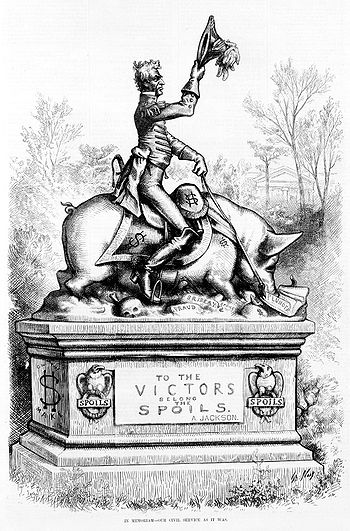I have been watching the US political drama--as in soap opera--from afar. The nation of Palau, where I spent the last four months has a close relationship with the United States. For four decades following World War 2 Palau was part of a trust territory overseen by the United States. Since Palau became the fourth smallest nation in the world, Palau continues to maintain close ties with its big brother. Palauans can serve in the United States military, can go in and out of US borders with the same freedom as US citizens, are eligible to receive educational assistance, and the nation's only post office has a US zip code, 96940. Much of the island nation's government structure is modeled after America's.
A few weeks ago I had an interesting conversation. A friend and I had gone to a modest, but nice, restaurant for lunch. It is owned by one of Palau's former presidents. As we were finishing out meal, Former President Nakamura, sat down at our table. He and my friend are well acquainted. He proceeded to introduce himself to me, and an interesting conversation ensued. Before long a question came up. "How," Mr. Nakamura wanted to know, "did the greatest nation on earth and two of the greatest political parties on earth come to this?" The "this" he referred to was the unfolding presidential campaign. The question is even more pointed now that what was only possible a few weeks ago has become all but a sure thing.
Just about every time I watch a news cast, or read a political article I see the statesman from the other side of the world looking at me with a gentle smile. His question haunts me. Indeed, how did we come to this state of affairs? The question would be troubling enough if I lived in a land ruled by a king, where the succession of leadership is determined by who is born to whom and when. In my land however, since I am involved in the choice of those who lead my nation, I have too admit that the current state of the state is not just an interesting point for discussion. It is a matter of personal responsibility.
Following the past few election cycles, I've seen bumper-stickers that proclaim, "Don't blame me. I didn't vote for ______." I suppose I could adopt that philosophy. "I'm right; if only people would have followed my example. . . ." Yes, in my land I am not only the ruled; when I go to the polling place I am the ruler. I do need to cast that vote responsibly, but is that all? How active should I be in politics? Is our current situation a confirmation of Burke's famous pronouncement? It would appear that evil will triumph in the current election cycle--the only question is which flavor of evil. Is the explanation that good men have done nothing? Am I one of those good men who spent too much time sitting on their hands?
I have a number of questions, and few answers, maybe we can help each other. I welcome your comments.
- Some have adopted an attitude of fatalism. A friend recently posted an article by a friend of his that began, "The fact is, and this is a biblical fact...If Donald Trump is our next President, he will be there because the hand of God is on him to put him there." The same can be said about Hilary or, for that matter, we could just as well say, if the Ayatollah of Iran successfully seizes power over the USA and establishes a new caliphate it will have taken place within the sphere of God's sovereignty. Existentialist Albert Camus, in The Plague, sets up a dilemma. A plague had come. The priest in the story concluded that the plague had come has a result of God's judgment. Therefore to oppose the plague was to oppose God.
In Old Testament Israel a particularly unscrupulous king murdered his way into power, I ask myself, "Why did God allow Jehu to become King?" My answer is, "Because Israel deserved to have Jehu for her king." (2 Kings 9-10) Still if Jehu had been running for office instead of riding in on a reign of terror, I wouldn't have voted for him. It is not right to choose evil. - What are the limits of what one can do with a clear conscious. I am told that Hitler was nice to little children. Is that virtue sufficient to earn my vote. Even those candidates who are very admirable are not perfect. Is there ever a mortal who is worthy of my vote. Theologian Andy Naselli thinks out loud on this one. His thoughts are worth considering. http://andynaselli.com/can-you-vote-for-donald-trump-with-a-clear-conscience
- Russel Moore takes on the question that seems to dominate the conservative end of the current political discussion. Should a Christian vote for the lesser of two evils? You should read his thoughts, but in brief his answer is "No."
http://www.christianitytoday.com/ct/2016/march-web-only/should-christians-vote-for-lesser-of-two-evils.html - It is a bit more general but Steve Cornell has some thoughts on Christians engaging with culture. Clearly how we vote is one of those points where our Christian worldview stands toe-to-toe with the culture where we live.
https://thinkpoint.wordpress.com/2016/05/06/four-reactions-to-culture/ - Sometimes when things are bad it is good to remind yourself of some conclusions you came to when things weren't quite so bad. I reread this old piece and I think the me that is wondering what to do today needs to hear the me that spoke a while ago.
http://howardmerrell.blogspot.com/2012/08/politics-lets-let-church-be-church.html
I'm still thinking about the President's question. I add another one: What am I going to do about it?

